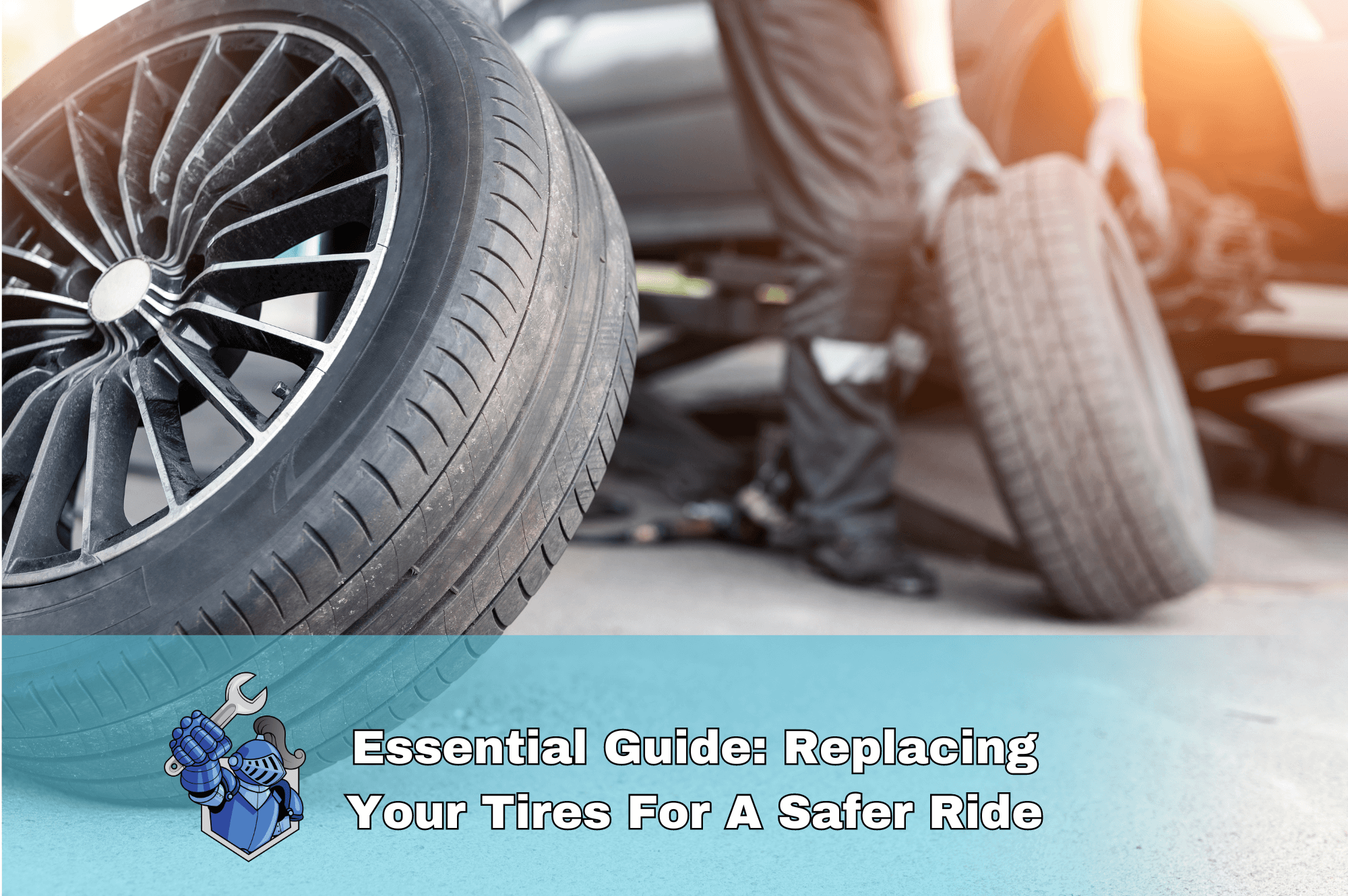Essential Guide: Replacing Your Tires for a Safer Ride
Changing your tires is an essential part of vehicle maintenance, yet it is something that many people overlook. Believe it or not, there is an actual expiration date on tires that determines just how long they will last. Some tire manufacturers now make tires that can last up to nearly 80,000 miles, but even if you don’t hit that number, tire changes and/or inspections are recommended every six years at the minimum.
Understanding Tire Longevity
Automotive safety experts say a tire needs replacing when its tread depth reaches 2/32 of an inch. While that’s a great standard to live by, most people have no idea how to even look for something like that when inspecting their own tires. One way to measure tread depth is by using a tread depth gauge, a small tool available at most auto parts stores. Another simple method is the penny test: insert a penny into the tire's tread groove with Lincoln's head upside down. If you can see the top of Lincoln's head, it's time to replace your tires.
Estimating Tire Replacement Timing
Estimating that most Americans (pre-pandemic) drove roughly 15,000 miles a year, the common-sense approach would be to have your tires replaced every four years. If, like many now, you are working remotely and not putting nearly the number of miles on a car as previously, replacing your tires between four and six years is the safest bet. Tires age over time, regardless of mileage, due to factors like exposure to sunlight, temperature changes, and road conditions.
Indicators of Tire Health
Other indicators for your tire’s health besides the tread include the balance, rotation, and tire pressure. Many tire manufacturers recommend car owners rotate their tires between 5,000-8,000 miles. Rotating your tires helps with balance and even tread wear, which extends the life of your tires. It's also important to check your tire pressure regularly, as under-inflated tires can lead to poor handling, increased wear, and higher fuel consumption.
Professional Tire Services
For those who prefer not to inspect their own tires, visiting an auto repair or tire store is a wise choice. These shops use balance machines to ensure your tires are spinning correctly and can perform other required checks to keep your tires balanced. They can also help with tire alignment, which is crucial for maintaining even wear and preventing your car from pulling to one side.
Advances in Tire Technology
Tires have improved tremendously over the years, giving drivers more time to drive on them before eventually needing to replace them. Modern tires are designed with advanced rubber compounds and tread patterns that offer better grip, longer wear, and improved performance in various driving conditions. Staying safe on the road, especially if you live in a city that experiences a lot of rain or snow, is very important for your safety and the safety of other drivers.
Choosing the Right Tires
When it comes time to replace your tires, choosing the right type of tire for your vehicle and driving conditions is crucial. There are several types of tires to consider, including all-season, winter, summer, and performance tires. Each type has its own benefits and is designed for specific driving conditions. All-season tires are a popular choice for many drivers because they provide a good balance of performance in wet, dry, and light snow conditions.
Benefits of Regular Tire Maintenance
Regular tire maintenance offers several benefits, including improved safety, better fuel efficiency, and longer tire life. By keeping your tires properly inflated, balanced, and aligned, you can ensure optimal performance and handling. This not only keeps you safe on the road but also saves you money in the long run by reducing the need for premature tire replacements.
Common Questions About Tire Replacement
Q: How often should I check my tire pressure?
A: It's recommended to check your tire pressure at least once a month and before long trips. Proper tire pressure ensures optimal handling, fuel efficiency, and tire life.
Q: What are the signs that I need new tires?
A: Common signs include low tread depth, visible cracks or bulges on the tire sidewalls, uneven tread wear, and frequent loss of tire pressure. If you notice any of these signs, it's time to replace your tires.
Q: Can I mix different types of tires on my vehicle?
A: It's generally not recommended to mix different types of tires (e.g., combining all-season with winter tires) on the same vehicle. For optimal performance and safety, it's best to use the same type of tire on all four wheels.
Q: How much does it cost to replace a set of tires?
A: The cost of replacing a set of tires can vary widely depending on the type of tire and the vehicle. On average, a set of four tires can range from $400 to $1,200 or more.
Conclusion
Replacing your tires is a critical aspect of maintaining your vehicle's safety and performance. By understanding the indicators of tire health, adhering to recommended maintenance practices, and choosing the right tires for your driving conditions, you can ensure a safer and more enjoyable driving experience. Regular tire inspections and timely replacements are key to preventing accidents and improving your vehicle's overall performance.
For more information on tire maintenance, car safety, and other automotive tips, visit our Blog and Learning Center. Stay updated with the latest trends and insights to keep your vehicle running smoothly and efficiently.
Suggestions for you
Read MoreLet’s work together
Every week we showcase three charitable organizations that our donations are sent to. Our clients are able to choose which of these three will receive their gift when they add coverage to their vehicle...




